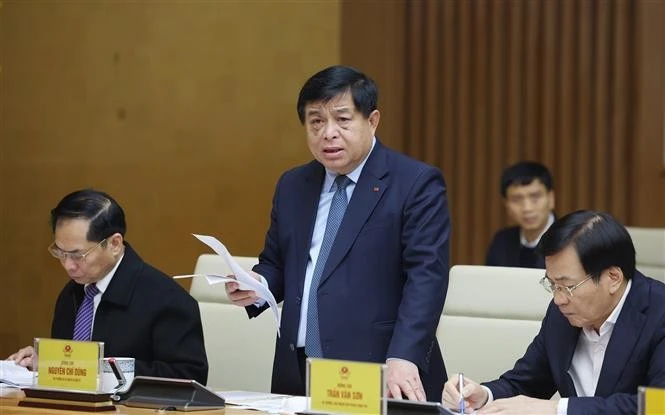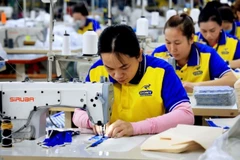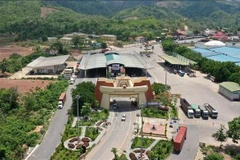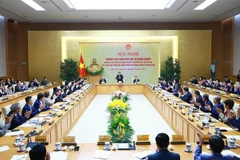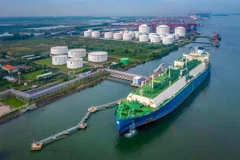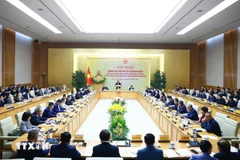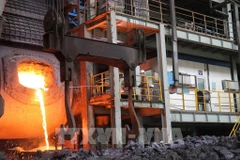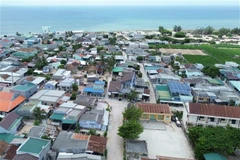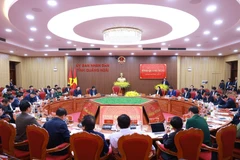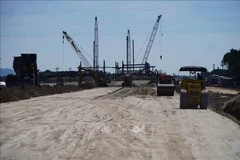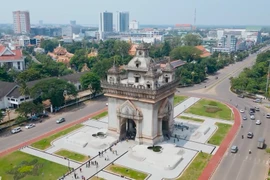Hanoi (VNA) - Minister of Planning and Investment Nguyen Chi Dung outlined six strategic directions to accelerate the private sector’s growth during a Government meeting with businesses in Hanoi on February 10.
In his remarks, the Minister highlighted the vital role that businesses play in the country’s economic development, accounting for around 60% of GDP and 98% of export turnover as well as providing jobs for approximately 85% of the workforce.
He called for collective recognition of the critical importance of the private sector, particularly private enterprises, in driving economic growth, boosting labour productivity and enhancing national competitiveness.
A key priority is enhancing the institutional framework, which is seen as a crucial driver for creating a more favourable business environment.
He underlined the need to revamp the legal framework to focus on development, and embrace result-oriented management and shift from ‘pre-check’ to ‘post-check’, while strengthening inspection and supervision.
Another major focus at the meeting was the need to streamline administrative procedures, improve the business environment and address bottlenecks, especially in sectors such as real estate, public-private partnerships and renewable energy.
Minister Dung emphasised the importance of immediate action to support large-scale infrastructure projects, particularly in major cities like Hanoi, Ho Chi Minh City and Da Nang, to unlock resources for businesses and stimulate economic growth.
In addition to infrastructure development, he advocated for expanding pilot policies and mechanisms that have already proven successful in certain regions, aiming to replicate their benefits nationwide.
He stressed the importance of tapping into State resources to stimulate private sector investments, particularly in strategic infrastructure such as expressways, high-speed rail and offshore wind energy projects.
Another key point of focus was innovation, technology and digital transformation.
He reaffirmed that science, technology, innovation and digitalisation are essential to Vietnam’s future, calling for policies that would foster the growth of large-scale, Vietnamese-led enterprises that can lead value chains both domestically and internationally.
The minister also underscored the importance of boosting domestic consumption and expanding export markets, particularly by taking advantage of the country’s 17 free trade agreements. He encouraged businesses to capitalise on new opportunities in emerging markets, particularly those that have recently upgraded their strategic partnerships with Vietnam.
He urged large enterprises to lead national challenges and innovative projects, while encouraging small- and medium-sized businesses to innovate, improve management and build global Vietnamese brands. Despite progress, he acknowledged that many businesses remain small, and Vietnam’s entrepreneurial ecosystem still lacks large enterprises capable of driving major economic change.
He highlighted several challenges, including slow infrastructure development, weak market demand and ongoing legal and regulatory barriers that continue to hinder the private sector. The minister urged swift action to tackle these issues, emphasising the importance of a more business-friendly environment to facilitate growth.
He also pointed out that the global landscape is rapidly changing, with new industries emerging, shifting policies from major economies and growing trade barriers. While these developments pose risks, they also present new opportunities for Vietnam and its businesses to adapt and thrive in the global economy./.
